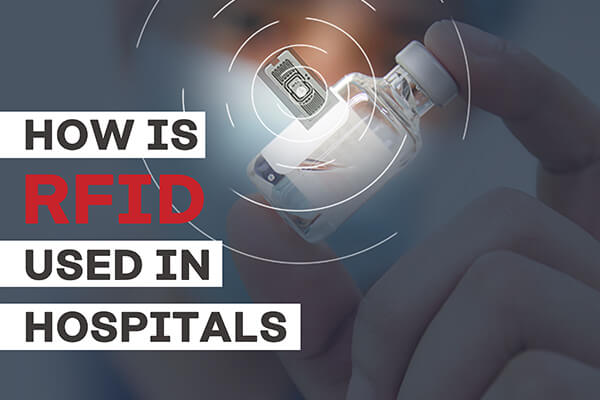RFID implementation is on the rise nowadays after being successful in several industries such as logistics, retail, and manufacturing. Today, RFID is a powerful technology that has evolved appreciably, especially for the healthcare industry in data collection, tracking location, and movement of assets and equipment. The technology is used in hospitals for;
1. Equipment tracking
Machines and equipment tracking is important for hospitals for them to not only know the location of their equipment but also easier asset maintenance. RFID tags help hospital staff to track their assets as they move in or out of the hospital premises. In the operation theatres, the asset maintenance management software provides real-time data that can help in handling mission-critical assets to avoid unplanned breakdowns during surgeries.
2. Medicine and pharmaceutical tracking
Each hospital has to keep up a consistent stock of essential medicines, as pharmaceuticals and medicines are the most consumed and critical items. Management software and asset tracking system informs about the expiry date of medicines and their stock levels. The software also enables one to track easily the medicines that are available in stock. Overall, surgical equipment and medicines are expensive commodities that healthcare establishments need to keep stock of and track easily.
3. Patient tracking and history records
To keep track of the patient on admission, they are given an RFID wristband that is girded around their wrist. The band carries all the relevant data such as allergies, name, medical records, etc. If the patient is admitted for a long time, the RFID band helps the doctor to know if the patient is allergic to any medicines. Also, the historical record of the patient provides crucial information that may assist in surgery. For a patient who has memory problems, the RFID band can help the doctors to know the exact whereabouts of the patient if they may stray or get lost in the hospital.
4. Laundry tracking
In every hospital room, there are towels, sheets, and blankets. Each of these items must be washed and disinfected daily. Using RFID laundry tags, hospitals can keep track of these items to ensure they are sterile.
5. Real-time traceability in laboratories
RFID technology offers real-time traceability of every blood sample or pallet of medication in labs and the entire supply chain. It also offers real-time visibility into the inventory. Also, the technology enables the hospital to monitor the temperature of heat-sensitive drugs throughout the supply chains and take the necessary measures to maintain standards and compliance.
6. Tracking staff
RFID technology in the hospital provides immediate tracking and management of the staff across all types of patient care environments. This information is useful in a busy hospital.
Conclusion
RFID technology has a lot of potentials to assist in the medical services in hospitals as the system opens up new doors for operational effectiveness, enhanced security, and cost savings by tagging stocks and assets. RFID adoption is beneficial to improve the level of patient care and help hospitals to manage their assets and equipment better through asset management.
Nexqo is a professional RFID hardware provider with more than 10 years of experience in the RFID industry. Click here to learn how the RFID label works.
You can also click here to learn more about the products that you can use in your project. If you are not sure, welcome to contact our sales experts any time.
